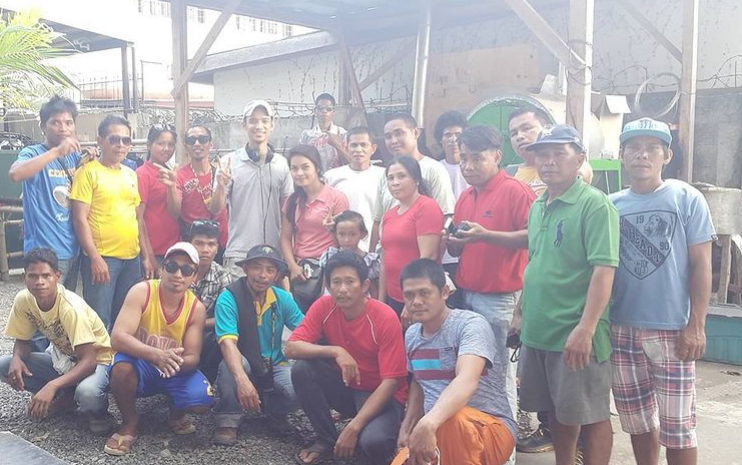How our business contributes to Peace, by CEO of Coffee for Peace, “Joji” Felicitas Bautista Pantoja
4 February 2022
When we started developing the concept of Coffee for Peace as a business in 2008, we had been working on the ground and listening to the voices of the rural poor, specifically the challenges and the systemic impoverishment experienced by most farmers in the land-based, armed-conflicted areas of Mindanao.

Knowing our resource and time limitations in the field, we focused our attention on the coffee farmers.
We were aware of the many programmes encouraging farmers to produce and plant more coffee, but one thing was missing. The programmes were conceptualised in the offices of the funding organisations, lacking real consultation and deep listening on what the farmers actually need. In the end, the programmes were not the farmers’ project; they were the funders’ project. Despite the accomplishment reports of the officials, the people on the ground did not really embrace them as their own.
Coffee for Peace starts with listening. For us, listening is the first act of love. If we truly love the people, we ought to listen to them — with our ears, with our minds, with our hearts, and with our will.
We also listen to ourselves — what are lenses through which we listen, and what are resources we can access to respond to what we have heard.
We got involved by amplifying the voices of the farmers to the government. We accompanied the farmers’ spokespersons to many assemblies conducted or facilitated by various government and non-government organisations. We actively attended meetings, until they heard the farmers we were accompanying. We wrote proposals to work with the government and with other organisations by being their partner on the ground. In most cases, we served as project managers or consultants. We helped organise the farmers. We initiated trainings to bring them from the position of mere raw material suppliers to the position of being farmer entrepreneurs or ‘farmerpreneurs.’ We vouched for the farmers’ organisations as they received grants from the government. The government saw evidences of transparent, sustainable, and reproductive use of public funds entrusted to the farmers.

The training we provide are all framed in peace and reconciliation (PAR) principles and practices. The PAR training programme includes:
- the fundamentals of peacebuilding
- conflict transformation processes
- cross-cultural understanding
- inter-faith dialogue
- inclusive development
These trainings were conducted in such a way that the farmers would understand the complex concepts using development communications approaches.
Change did not happen overnight. In our experience working with the communities who partnered with us, it would take three years to introduce a new system of thinking and working — from harvesting, processing, to having a mindset of an entrepreneur, to becoming a peacebuilding community. A family or two would apply the way Coffee for Peace, then we see their neighbors embracing the principles and practices, then we see most of the community adopting the transformative process.
Our partnership with the government and other non-government organisations helped us accomplish beyond our own organisational capacities. To increase the livelihood sustainability of the community, we helped train them to receive larger grants from the government or investments from other businesses or institutions. Right now, we see this stage of their development as a stable foundation towards further inclusive development for the next generation.
Coffee for Peace is focusing now on each individual farmer to help enhance their natural gifts and acquired skills as ‘farmerpreneurs.’ Some of them are technically inclined. Some of them are good teachers. Some of them are good with numbers. We see many more talents and skills among many of them. We are seeing the best side of each farmer and we’re facilitating how important it is for each one to work with one another harmoniously. With this inclusive and holistic view of community development, we are more confident that they can move further towards achieving greater dreams.

One big corporation operating in a conflict-affected area said that since they worked with Coffee for Peace and with our twin organisation, PeaceBuilders Community, their budget for extra bodyguards and security system significantly decreased in over a year. They saved money integrating the culture of peace in their corporate conflict management system. They were also able to develop a good working relationship with the community with whom they used to have conflicts. The high-ranking government official who was sent by our national government to observe the conflict transformation processes in this case was so happy and gave a very positive report. He saw how the mix of business and peacebuilding became a model for inclusive development especially among communities in conflicted areas.
CFP, along with our twin organisation PBCI, are grateful and glad to see a peace-framed social business contribute to an increased harmony in the community in terms of family income, sustainable livelihood, relational harmony, and the pleasure of producing and drinking freshly brewed coffee.
For justice. For peace.
Joji Pantoja
President & CEO
Coffee for Peace, Inc.Davao City, Philippines

This article was originally published in Business for Peace Medium.



